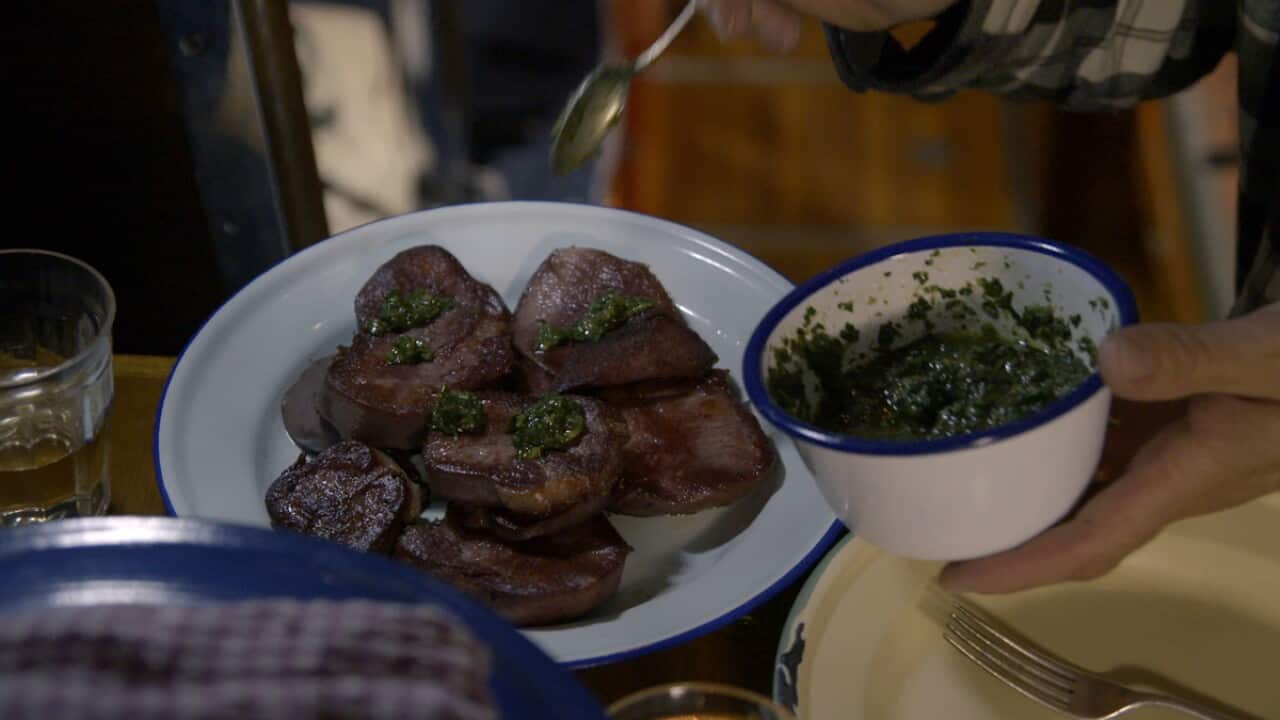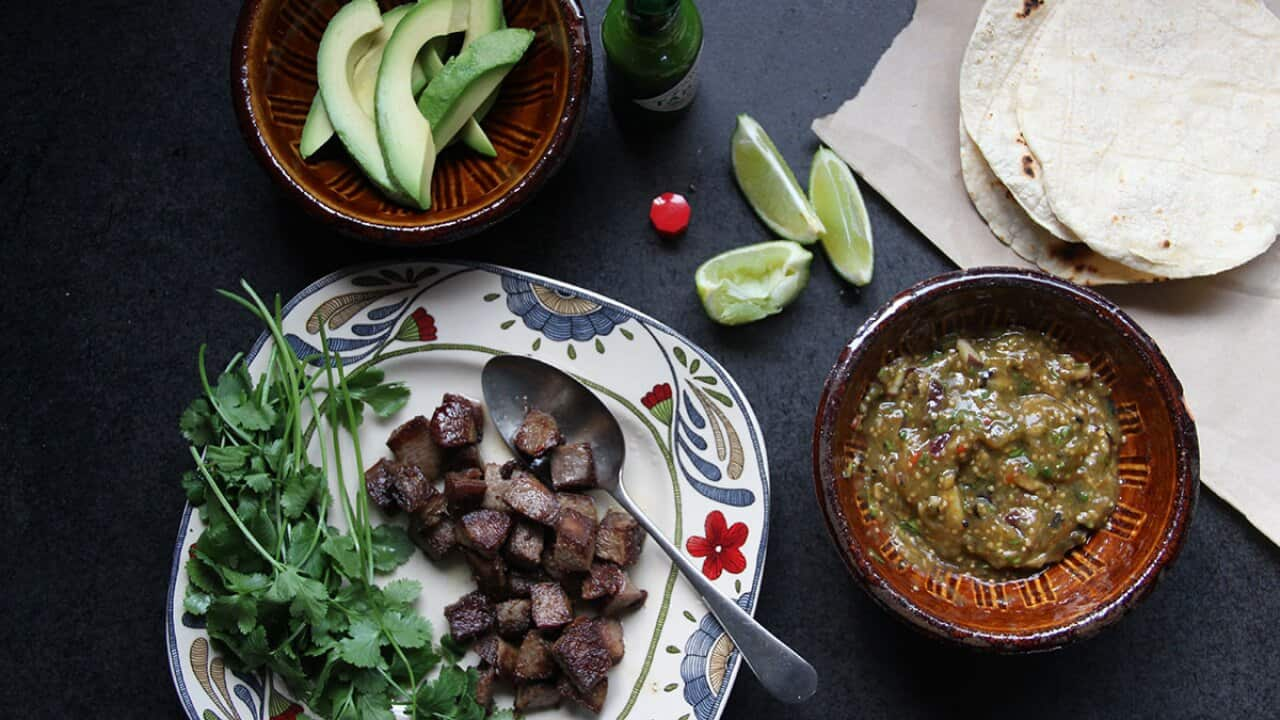Brains. Lungs. Heart.
It sounds more like a medical journal than a menu. These bits, the internals of an animal, are highly nutritious, a state usually reflected in the taste. They can taste of iron, of things other than just the relative mildness of meat, and offal is usually quite rich and forthright.
While I do eat it, I’m not the biggest offal fan. Some days I’d love nothing more than to eat a plate of liver and onions, or have a blood sausage. Other days I’m okay without. Maybe it’s my body telling me what I need, and what I don’t. Or maybe I’m just not built of sturdy enough stuff. I’m not like my friend Franz Scheurer, who will eat sheep testes for breakfast, and can scoff a whole blood pudding at a sitting. No, I’m more meek in my tastes.
And that’s okay. Just as a 500-kilogram steer only about three to four kilograms of eye fillet in it, it also has less than two kilograms of tongue, and just one tail. We can’t all eat the offal, all the time, just as we can’t all eat the sirloin. But eating a bit of offal, quite regularly, is an ode to the animal, and almost incumbent on us as meat eaters.
Every sheep has a brain. Every cow has sweetbreads. Every pig has a liver. And if we choose to breed, fatten, and kill these animals, or we expect someone else to do that in our name, then surely we must value every bit of the animal the same. So while pork fillets might fetch a premium, if we care about the animal that has lived and died so we can eat meat, we must prize every bit we can.
That might mean we use the intestines to make sausages. It might mean come up with ways to utilise the liver, even if it does have a stronger flavour than calf or lamb liver. It could be that some people eat more than their fair share of offal, so you can eat it less, but valuing it is important nonetheless.
In some ways, modern cooking has lost the art of dealing with offal. In Rome in Italy, they call the offal the ‘fifth quarter’, because it was the bit the butcher’s family and other working class people got, after all the more desirable cuts were sold. And in the way of any great cuisine, the butchers’ families learned how to not just cook the offal, but to make it taste superb.
In many cultures the sheep or goat’s head is a prized cut. There’s a reason we can celebrate ox tail – every beast only has one, so it is just as rare as the fillet. Eating chicken hearts isn’t commonplace, yet every chicken has one, and skewered and roasted over coals like a friend taught us means you’ve valued the chicken more, and got a good extra meal into the bargain.
Eating offal should form part of every omnivore’s consciousness. If we waste less of the animal, there’s a good chance we’ll raise fewer animals. And raising fewer animals is probably going to become an imperative if we are to care for our soil, our air, our animal welfare as the world becomes more affluent and more populated. Powerful flavoured organs, cooked so they’re delicious, can satisfy our demand for meat, for the nutritional benefit of a really high quality protein, and add nothing to the environmental downfalls of eating meat. Matthew's makes a super-fast mid-week meal.
Matthew's makes a super-fast mid-week meal.

Source: Alan Benson
I’ve not been as good as I can with offal. It’s harder for us to get the offal from our animals from the local abattoir because it means extra trips, extra paperwork. We should do better. But the system is often like this. Good butchers can struggle to get the offal from the animals they sell, because not every abattoir is set up to collect offal. Much of our offal is exported from bigger abattoirs, too, which isn’t a bad thing, as perhaps other nations value those bits more than we do.
But we can do our bit. Adding a little pate to your diet could be better for you, and the animals in our care because we may raise them less intensively. Choosing to use a beef tongue in a taco, or bit of pig’s liver in a broth, might just reduce the impact on the environment of farming animals.
And if we learn to cook offal well, it can add another layer of enjoyment to our dinner tables, too.
Matthew Evans is back in his brand-new series of starting Thursday August 3 at 8pm on SBS. Visit the program page for recipes and to find out more about the show.







